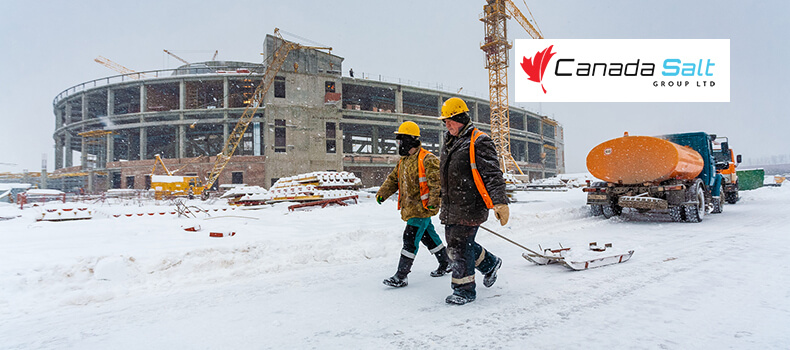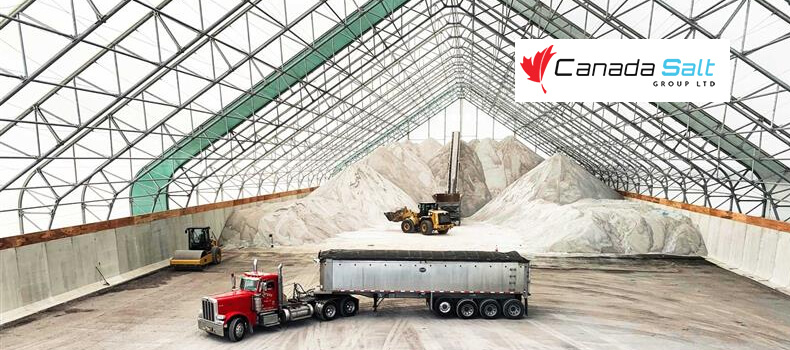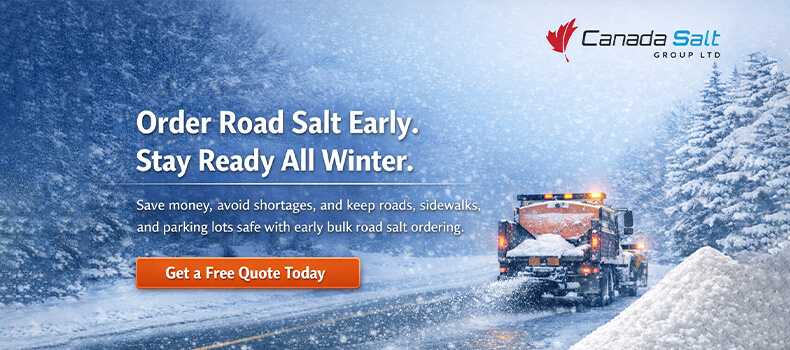How Construction Crews Use Salt to Maintain Winter Job Site Access?
During the winter season, snow and ice become a major concern for construction projects. Due to the accumulation of ice, the ground becomes frozen, making it slippery and inaccessible for the work to be done. Due to this, the work becomes slower, and safety hazards also arise. That is the reason bulk road salt is used to manage such situations, making the jobsite accessible for work. In this article, we will explore how construction crews use salt to maintain winter job site access while ensuring safety and keeping operations running smoothly.
Why Salt Matters on Winter Construction Sites?
Salt is commonly used on roads, parking lots and sidewalks; it also plays an important role in maintaining the functionality of construction sites. Below are the reasons why salt is used at construction sites:
- Maintains Access Roads and Site Entrances: Salt is used to melt snow and ice that forms on the temporary access roads, gravel paths, and site entrances, ensuring that vehicles, crews, and equipment can access the site easily.
- Prevents Equipment Delays: Since heavy equipment and trucks can’t operate on icy surfaces, salt is used to provide friction and reduce the downtime caused by icy conditions to the vehicles.
- Reduces Risks: Workers’ safety is the top priority on any job site. Due to the extreme weather conditions, there is a risk of slips and falls. By applying salt to icy surfaces, we can prevent these risks and adhere to OSHA safety standards.
- Prevents Job Delays: Maintaining site accessibility will reduce the risk of frequent shutdowns due to weather conditions. Using salt as a proactive measure can keep timelines on track.
Where Salt Is Used on Construction Sites?
Construction companies generally use salt in the following areas:
- Pathways and access roads
- Parking areas for equipment and crew vehicles
- Loading areas for deliveries
- Perimeter fencing areas
- Gate entry points
- Foundations or concrete forms awaiting work
If the site is larger, bulk salt is used in place of bagged salt to save costs and coverage capacity.
Best Practices for Using Salt on Construction Sites
- Anti-Icing: By pre-applying salt, the crew can prevent ice from adhering to the ground. This reduces ice formation, making snow removal easier.
- Treated Salts or Salt Blends: In colder regions, blended or treated salt types, such as magnesium chloride or calcium chloride, work more efficiently at lower temperatures.
- Proper Salt Storage: Always cover the salt with a tarp and store it off the ground using a salt bin or a dome to prevent contamination and runoff.
- Provide Training: Using the proper amount of salt is important for ice management. Overuse of salt can lead to environmental concerns and infrastructure damage, while less use of salt can be equally ineffective. Training your crew on proper spread rates and patterns is crucial for effective salt use.
- Combine Salt with Snow Removal: Salt is most effective when used in conjunction with snow removal. After snow clearing, spreading a light layer of salt can help to manage leftover ice and prevent the reformation of ice.
Partnering with a Reliable Bulk Salt Supplier
Job sites must remain operational even during the winter season. To make this easy, choose a reliable bulk salt supplier that offers:
- Bulk purchasing
- Delivery options
- Emergency resupply
- Weather-triggered delivery scheduling
- Treated salt for colder conditions
- On-site storage solutions
Choose the one who understands the construction timelines and delivers the salt with flexible logistics.
Conclusion: Salt is a Winter Job Site Essential
From safety to productivity, salt plays an important role in winter construction sites. By maintaining the access roads and pathways clear and safe, crews can prevent the risks associated with the winter weather at the construction site. If you manage a construction site, don’t wait for the storm to hit. Get your bulk road salt supply now at Canada Salt Group Ltd. and ensure your team stays productive, regardless of the weather. Contact us for a free quote!





